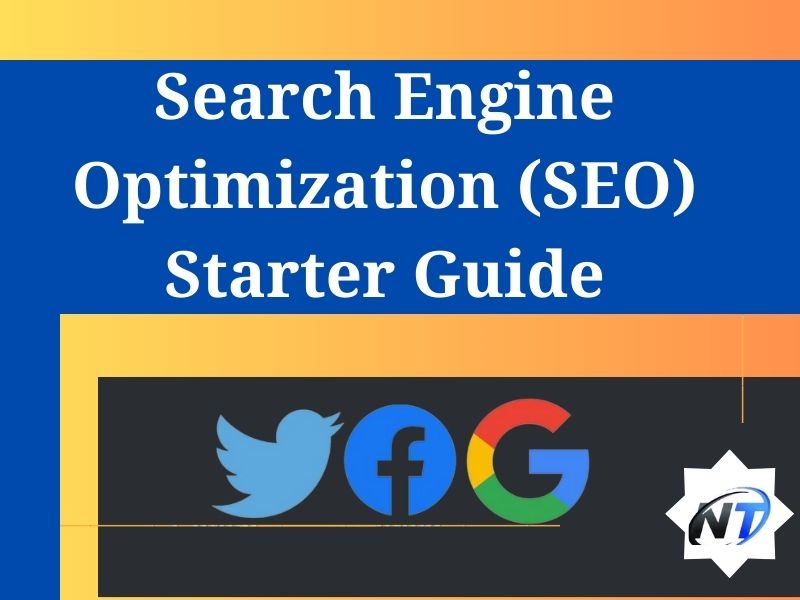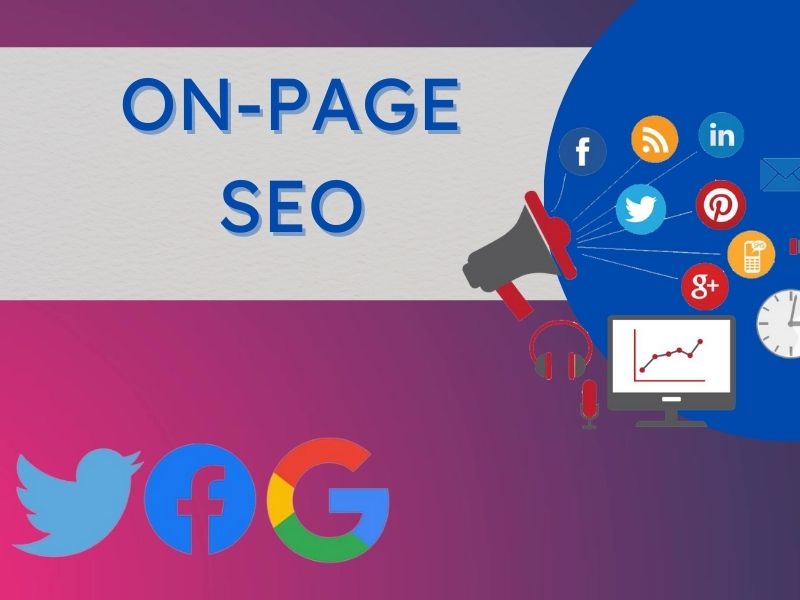



In the digital era, where the internet is the primary source of information, having a strong online presence is crucial for businesses and individuals alike. Search Engine Optimization (SEO) plays a pivotal role in enhancing visibility and driving organic traffic to websites. In this article, we delve into the intricacies of SEO, its significance, and why it is essential for anyone looking to thrive in the online realm.
What is Search Engine Optimization (SEO)?
Search Engine Optimization is the practice of optimizing web content and improving its visibility on search engine results pages (SERPs). It involves various strategies and techniques aimed at enhancing website ranking, thereby increasing organic traffic.


Enhanced Visibility:
In today's digital age, where consumers turn to search engines to find information, products, and services, the competition for online visibility is fiercer than ever. With millions of websites vying for attention, it's essential for businesses to ensure that their online presence stands out amidst the clutter. This is where Search Engine Optimization (SEO) comes into play.
SEO involves optimizing various elements of a website to improve its visibility on search engine results pages (SERPs). By strategically incorporating relevant keywords, optimizing meta tags, creating high-quality content, and enhancing user experience, businesses can increase their chances of appearing higher in search engine rankings.
When a website ranks higher on search engines like Google, Bing, and Yahoo, it is more likely to be seen by users who are actively searching for products or services related to the business's offerings. As a result, SEO helps businesses cut through the noise and grab the attention of their target audience, ultimately driving more organic traffic to their website.
Increased Traffic:
One of the primary objectives of SEO is to attract more organic traffic to a website. Organic traffic refers to visitors who land on a website through unpaid search results rather than through paid advertising. By optimizing a website for relevant keywords and improving its search engine ranking, businesses can increase their visibility to users actively searching for what they offer.
When a website appears higher in search results, it is more likely to attract clicks from users. Studies have shown that the majority of clicks go to the top few results on the first page of search engine results. Therefore, by securing a top position in search results through effective SEO strategies, businesses can significantly increase the likelihood of users clicking through to their website.
With increased traffic comes the opportunity to engage with a larger audience, generate leads, and ultimately convert visitors into customers. By consistently implementing SEO best practices, businesses can sustainably increase their website traffic over time, driving growth and success in the online realm.
Credibility and Trust:
In the eyes of consumers, websites that rank higher on search engines are often perceived as more credible and trustworthy. This is because search engines like Google use complex algorithms to determine the relevance and quality of web pages, with higher-ranking pages typically being those that provide valuable, authoritative, and trustworthy content.
When users see a website at the top of search results, they are more likely to view it as a reputable source of information or a reliable provider of products or services. As a result, businesses that invest in SEO not only improve their visibility but also enhance their credibility and trustworthiness in the eyes of their target audience.
Building trust and credibility is essential for establishing strong relationships with customers and fostering brand loyalty. By consistently delivering valuable content, optimizing user experience, and adhering to SEO best practices, businesses can strengthen their online reputation and differentiate themselves from competitors.
Cost-Effectiveness:
Compared to traditional advertising methods such as print ads, TV commercials, or billboards, SEO offers a cost-effective way to reach a targeted audience and generate leads. While traditional advertising typically involves significant upfront costs and ongoing expenses, SEO requires a relatively modest investment of time, effort, and resources.
With SEO, businesses can attract organic traffic to their website without having to pay for each click or impression. This means that once a website achieves a high search engine ranking, it can continue to attract visitors and generate leads without incurring additional advertising costs.
Furthermore, SEO allows businesses to target specific keywords and demographics, ensuring that their marketing efforts are focused on reaching the most relevant audience. By optimizing for long-tail keywords and local search queries, businesses can attract highly qualified leads who are more likely to convert into customers.
Overall, the cost-effectiveness of SEO makes it an attractive option for businesses of all sizes, from small startups to large enterprises. By allocating resources towards SEO efforts, businesses can achieve significant returns on investment (ROI) in the form of increased website traffic, leads, and sales, making it a valuable asset in the digital marketing toolkit.
On-page optimization refers to the process of optimizing various elements within a website to improve its search engine ranking and enhance user experience. This involves fine-tuning specific components directly on the web pages themselves. Here are some key aspects of on-page optimization:
Keywords: Keyword optimization involves strategically incorporating relevant keywords into the website's content, including headings, paragraphs, and image alt text. By aligning content with popular search queries, businesses can improve their chances of ranking higher in search engine results for those keywords.
Meta Tags: Meta tags, including meta titles and meta descriptions, provide search engines with information about the content of a web page. Optimizing meta tags involves crafting compelling titles and descriptions that accurately reflect the page's content and entice users to click through from search results.
Headings: Proper use of headings (H1, H2, H3, etc.) not only helps organize content for readers but also signals to search engines the structure and hierarchy of the page. Using relevant keywords in headings can further improve search engine visibility and readability.
Internal Linking: Internal linking involves linking to other pages within the same website. This helps search engines discover and index other pages on the site, as well as establish a hierarchy of importance among pages. Strategic internal linking can also improve user navigation and encourage visitors to explore more content.
By optimizing these on-page elements, businesses can improve their website's relevance and authority in the eyes of search engines, leading to higher rankings and increased organic traffic.
Off-page optimization focuses on improving a website's authority, credibility, and relevance through activities that occur outside of the website itself. Unlike on-page optimization, which involves directly modifying website content, off-page optimization aims to enhance a website's reputation and visibility across the web. Here are some key aspects of off-page optimization:
Building Backlinks: Backlinks are links from other websites that point to your site. Search engines consider backlinks as votes of confidence in your website's authority and relevance. Building high-quality backlinks from authoritative websites can significantly improve your website's search engine ranking.
Social Media Engagement: Active participation on social media platforms can help increase brand awareness, drive traffic to your website, and improve your website's authority. Sharing content, engaging with followers, and participating in discussions can all contribute to a robust social media presence, which indirectly impacts search engine visibility.
Online Reputation Management: Managing your online reputation involves monitoring and responding to reviews, mentions, and comments about your business across various online platforms. Positive reviews and mentions can enhance your website's credibility and trustworthiness, while negative feedback can harm your reputation and affect search engine rankings.
By focusing on off-page optimization strategies, businesses can improve their website's authority, credibility, and relevance, ultimately leading to higher search engine rankings and increased organic traffic.
Technical SEO involves optimizing the technical aspects of a website to improve its crawlability, indexing, and overall performance in search engine results. While on-page and off-page optimization focus on content and external factors, technical SEO focuses on the underlying infrastructure and technical setup of a website. Here are some key aspects of technical SEO:
Site Speed: Website speed is a critical factor in user experience and search engine ranking. Slow-loading websites are more likely to have higher bounce rates and lower search engine rankings. Optimizing site speed involves minimizing server response times, optimizing code, and leveraging browser caching techniques.
Mobile-Friendliness: With the increasing use of mobile devices, search engines prioritize mobile-friendly websites in their rankings. Ensuring that your website is responsive and optimized for mobile devices is essential for maintaining a competitive edge in search results.
Website Architecture: A well-organized website structure makes it easier for search engines to crawl and index your content. This involves creating clear navigation, using descriptive URLs, and organizing content into logical categories and subcategories.
By addressing these technical aspects of SEO, businesses can ensure that their website is optimized for search engine visibility, resulting in improved rankings, increased organic traffic, and a better overall user experience.
SEO is a valuable skill for anyone involved in digital marketing, web development, content creation, or online business management. Whether you're a marketing professional, business owner, freelancer, or aspiring digital marketer, learning SEO can significantly enhance your career prospects and contribute to the success of your online endeavors.
In today's highly competitive digital landscape, mastering the art of Search Engine Optimization is no longer optional but essential for success. By understanding the principles of SEO and implementing effective strategies, businesses and individuals can achieve higher visibility, attract more traffic, and ultimately, drive sustainable growth in the online world.
At Nikke Tech, we offer comprehensive Digital Marketing training programs, including in-depth modules on Search Engine Optimization. Our industry experts provide hands-on training and practical insights to equip you with the skills needed to excel in the dynamic field of SEO. Join us today and embark on a journey towards unlocking the full potential of Search Engine Optimization!